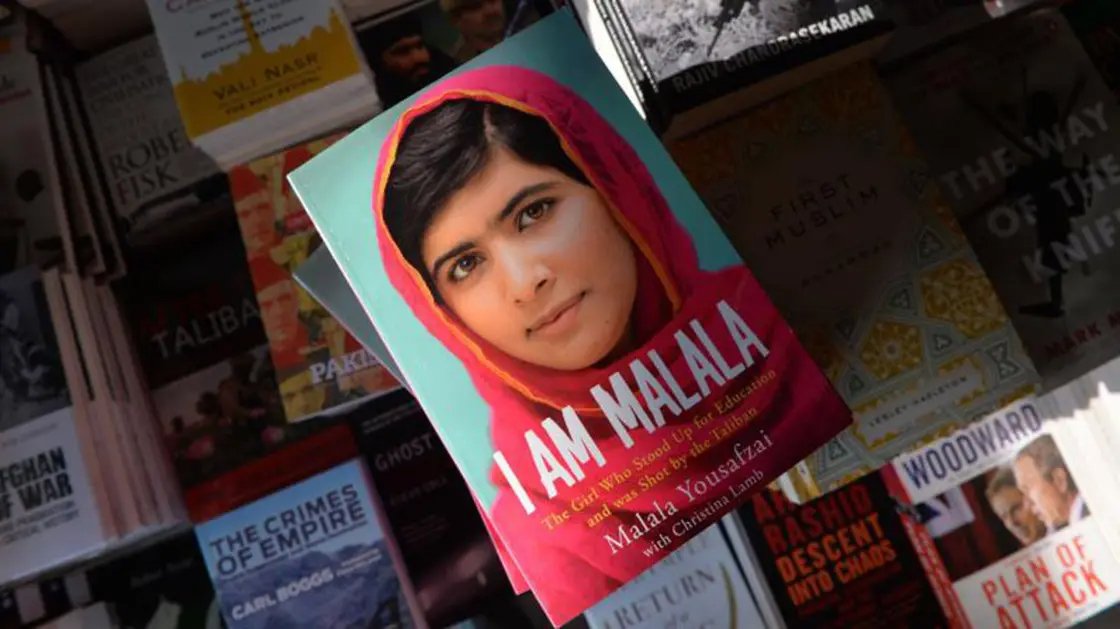Combating STEM Inequalities in STEM Fields - A blog of the miniseries “Pioneers in Bettering the World”
February 11th is the International Day of Women and Girls in Science
At 15, she got shot in the head by a Taliban gunman while riding the bus home from school in Pakistan’s Swat Valley. She went into a coma after the shooting and underwent numerous complex surgeries including one where part of her skull was removed to alleviate the brain swelling. Instead of giving in to fear, she emerged with unwavering determination to continue spearheading educational equality for Pakistani girls.
Her name is Marlala Yousafzai. Born in a modest setting in northwestern Pakistan, she had a life that seemed ordinary at first glance. She received education primarily from her father who is an educational activist, spoke three languages, and once saw herself grow up to become a doctor. However, her trajectory took a tremendous diversion. At the age of 11, she developed a strong interest in politics, particularly advocating for the educational rights of girls.
At the time, Pakistani Taliban militants were taking over her hometown, banning television, music, and girls' education. Girls’ schools were being bombed. Facing such adversity, Malala’s courage shone through as she collaborated with BBC reporters and wrote a blog under a pseudonym detailing her life under the Taliban regime. The New York Times made a documentary about her life. Malala’s journey of activism took off from local influence to courageous appearances on international media, publicly condemning the Taliban for taking away the education right for girls.
Numerous threats to her life were received at her house and through social media that ultimately led to the assassination attempt. She refused to be deterred and continued her advocacy after her recovery. At the age of 17, Malala became the youngest-ever Nobel Peace Prize laureate.
Malala’s bravery and resilience are remarkable. Her journey is inspiring and carries profound implications for the youth generation who aim to build more inclusive and fair societies.
I’ve developed an intense passion for math since the age of 8. My insatiable curiosity for the subject propelled me onto an accelerated path, spanning from foundational school math, through competitive mathematical pursuit, and eventually to original math research. However, as I delved into more advanced classes to unravel the complexities of mathematics, a stark gender disparity became apparent. These academic spaces became increasingly dominated by boys. Even as I traveled across the country to participate in various math competitions, the decreasing representation of girls on teams was impossible to ignore.
This observation drew my attention to the notable value that balanced gender representation brings. Teams thriving with both girls and boys foster bustling and diverse perspectives and innovative solutions. Despite research indicating no inherent cognitive differentiation between genders in mathematical aptitude, the stereotype of male superiority persists as an obstructive hurdle. Men heavily outnumber women in STEM majors in colleges, and women comprise less than 30% of the workforce in STEM fields.
Societal beliefs and environments have deep effects on girls’ interest and confidence in STEM. Many girls lose confidence in math and science by elementary school. Gender biases limit their access and leave them ill-equipped to venture into STEM fields. Nevertheless, despite this underrepresentation, women have consistently made significant accomplishments in STEM domains. Their contributions are pivotal in maintaining a heterogeneous and adept workforce, dismantling biases, and having substantial impact in driving innovation, technology, and cultural development.
How can we empower girls with the confidence and competence required to excel in math and science? The solution calls for multifaceted efforts, encompassing interventions throughout K-12 STEM education, including adopting inclusive practices to celebrate diverse talents.
Moreover, the transformation demands systemic change, where policies and practices are reengineered to democratize STEM pursuits for girls. Mentorship and female role models can be instrumental in lighting up their aspirations. Concerted efforts between schools, parents, communities, and governments are indispensable to forge a new path—one that encourages and champions girls' involvement in STEM from the earliest stages of their education.
Motivated by a commitment to fostering interest and creating opportunities in STEM, and with a specific focus on bridging the gender gap in these fields, I took the initiative to establish the non-profit platform 1,000+ Holes of Golf. Collaborating closely with a vibrant community of young golfers, the organization is driven by the belief in the transformative potential of sports. We harness our shared passion for golf to not only raise funds but also to bring about meaningful change in the realm of STEM accessibility.
Our efforts have led to the establishment of several STEM Corners in impoverished regions. Through fun-filled sessions, we guide children in solving Rubik's cubes, delving into the celestial realm of the summer sky through telescopes, exploring the hues and textures of gemstones, and marveling at the intricate details of leaves under the microscope. Concurrently, I play a central role in spearheading the Math Club, Computing Club, and Chess Club at the school. In this capacity, I have developed interactive curricula and facilitated game-based seminars that resonate effectively with students. These innovative approaches counteract the potential barriers posed by the often overly theoretical STEM courses and draw in a wider range of students. Moreover, in collaboration with Stem.to.Flower, a New York-based non-profit organization, we leverage diverse platforms to dismantle the gender disparities in STEM, with a particular emphasis on empowering young girls.
Malala’s journey is an embodiment of courage and the transformative potential of youth leadership. Drawing inspiration from her efforts, we are determined to work towards a world where every young mind, regardless of gender, gets enriched by scientific and mathematical pursuits and achievements.

